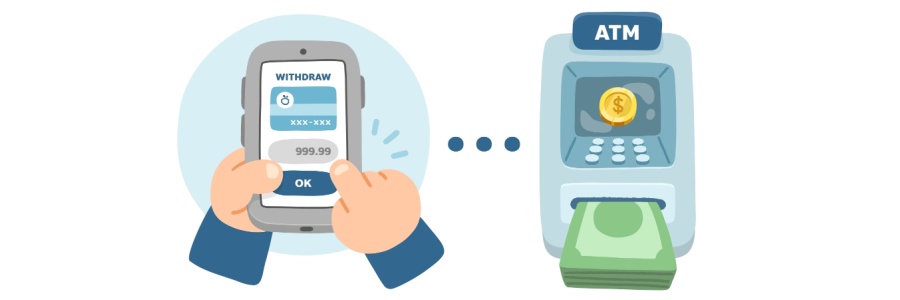For decades, $1 million has been seen as the magic number for retirement. It sounds like a lot—and for many, hitting that milestone feels like winning the financial game. But in today’s economic landscape, is $1 Million enough to retire? The unsatisfying but honest answer is: it depends.
How long $1 Million will last in retirement really depends on where you live, how you live, and when you decide to retire. All those personal choices—plus a few other factors—can mean the difference between your money running out at 75 or coasting comfortably until 95.
In this article, we’re going to break it all down—what factors really determine how long that money will last, how to stretch it as far as possible, and whether $1 million still cuts it in today’s world.
Key Takeaways
- $1 Million isn’t a guarantee — smart planning is key to making it last.
- Your withdrawal strategy matters — flexibility and tax efficiency go a long way.
- Healthcare costs can drain savings — plan ahead to stay protected.
- Keep investing for growth and stability — retirement is a long game.
- Expert guidance helps — the right strategies can make your money go further.
The Myth and Reality of the $1 Million Nest Egg

The idea that $1 Million is enough to retire took hold during the rise of 401(k) plans in the 1980s and 1990s. As pensions faded and self-funded retirement became the norm, $1 million was widely publicized as a reasonable target to support decades of non-working years.
Fast forward to 2025, and things look different. Persistent inflation has eroded purchasing power significantly. What cost $1 million in 1993 would cost over $2 million today. A retiree in a high-cost urban area or facing significant healthcare expenses could see that nest egg diminish rapidly. Depending solely on this round number is risky without considering your personal financial picture.
Modern retirement planning is shifting focus from asset accumulation to sustainable income generation. The new question is: How can I turn my savings into a reliable income stream that lasts as long as I do?
Is $1 Million Enough to Retire? Key Factors

Whether you’re planning to retire with $1 Million soon or still have a few years to go, knowing what impacts that money can make all the difference. Let’s take a look at what can make that million last decades—or drain faster than you’d expect.
- Lifestyle Expectations and Spending Habits
- Choosing to live simply—staying local, cooking at home, and sticking to a budget—can help you stretch your savings and keep retirement expenses low.
- On the flip side, frequent travel, big-ticket hobbies, and helping family financially can burn through your funds quickly.
- Investment Allocation Impact
- A diversified portfolio with a smart mix of stocks, bonds, and annuities can help balance growth and security over the long haul.
- Poorly allocated investments or being too conservative or too aggressive can either miss growth opportunities or expose you to unnecessary risk.
- Withdrawal Strategies and Their Impact – How you withdraw money from your $1 Million nest egg will determine how long it lasts.
- Following a flexible withdrawal strategy that adjusts for market conditions can help protect your savings.
- Rigidly sticking to the outdated 4% rule may not hold up in today’s economic environment, especially with rising inflation.
- Retirement Age and Life Expectancy
- Retiring later means fewer years of drawing down savings and potentially higher Social Security benefits.
- Longer life expectancy—especially if you live into your 90s—means your nest egg needs to last longer than you might expect.
- Geographic Location and Housing Situation
- Choosing an affordable place to retire or downsizing your home can significantly reduce your expenses and preserve your nest egg.
- Staying in a high-cost city or carrying a large mortgage or rent in retirement can cause your savings to drain faster.
- Healthcare Costs
- Having a plan for rising healthcare costs, including long-term care insurance or an HSA, is essential.
- Underestimating medical expenses or not understanding Medicare exclusions can be one of the biggest threats to your retirement budget.
How to Retire on $1 Million: Strategies to Make It Last

Stretching your $1 Million nest egg isn’t about cutting all the fun out of life—it’s about being smart with your income strategy and knowing where you can gain some financial efficiencies.
- Delay Social Security Benefits: Delaying benefits to age 70 can increase your monthly check by up to 30%. That boost means you can withdraw less from your nest egg in the early years, giving it more time to grow.
- Optimize Tax Strategies: Taxes don’t retire when you do. Use strategies like Roth conversions, tax-efficient withdrawals, and balancing tax-deferred, taxable, and tax-free accounts to keep more of your money. And don’t forget to take advantage of those tax breaks for seniors!
- Optimize Your Withdrawal Strategy: Instead of sticking to a rigid rule (like the 4% rule), build a flexible withdrawal strategy that adapts to market conditions, inflation, and your spending needs.
- Use a Bucket Strategy: A bucket strategy separates your savings into short-term (cash), medium-term (bonds), and long-term (stocks) categories. It helps you ride out market dips without having to sell off investments at a loss.
- Invest for Growth and Stability: Your investing days don’t stop at retirement. Keeping a balanced mix of growth (stocks) and stability (bonds, annuities) can help your portfolio last longer—especially if you’re planning for a 20- to 30-year retirement.
- Consider Annuities: Annuities can provide guaranteed lifetime income—like a self-made pension. They’re especially useful for covering non-negotiable expenses like housing, food, or healthcare.
- Plan for Healthcare: Healthcare costs can sneak up on you. Look into options like long-term care insurance, Health Savings Accounts (HSAs), and annuities with long-term care riders, to build a cushion for out-of-pocket expenses Medicare won’t cover.
Curious if your $1 Million is enough? Don’t guess—know for sure. Get your personalized Retirement Score and see exactly how far your savings can take you.

Smart Withdrawal Strategies to Make $1 Million Last

Creating a withdrawal plan is one of the most important moves you can make to help your $1 Million last. It’s not just about how much you take out—it’s about when and from where you take it.
- Start with Tax-Efficient Withdrawals: Pull funds from taxable accounts first to let your tax-deferred accounts keep growing.
- Use a Flexible Approach: Adjust your withdrawals based on market conditions. Take less when markets are down to give your investments time to recover.
- Consider Required Minimum Distributions (RMDs): Once you hit age 73, RMDs come into play. Plan ahead so you’re not forced to take out more than you need—and potentially pay higher taxes.
- Balance Guaranteed Income with Investment Withdrawals: Lean on predictable income sources like Social Security and annuities, so you can be more strategic about drawing from your investment accounts.
- Incorporate a “Guardrail” Strategy: Set spending bands for good years and lean years in the market, so you can adjust your withdrawals without derailing your plan.
Frequently Asked Questions
How much should I withdraw annually from my $1 Million retirement fund?
The old 4% rule is a starting point, but it’s not one-size-fits-all. A flexible withdrawal strategy that adjusts for market conditions and spending needs is often a better approach.
What role do annuities play in making $1 Million last?
Annuities can provide guaranteed lifetime income, helping cover essential expenses and reduce the risk of outliving your savings—especially when paired with long-term care riders for healthcare costs.
At what age can I retire with $1 Million?
The answer depends on your spending habits, investment returns, and lifestyle. Some may be able to retire in their early 60s, while others might need to wait until 65 or later to ensure their $1 million lasts throughout retirement.
How can I manage taxes in retirement?
Strategies like Roth conversions, tax-efficient withdrawals, and balancing different account types (taxable, tax-deferred, tax-free) can help reduce your tax bill and stretch your savings.
Should I still invest in stocks after I retire?
Yes! Even in retirement, maintaining a mix of growth and stability (stocks, bonds, annuities) helps your portfolio keep pace with inflation and support a long retirement horizon.




